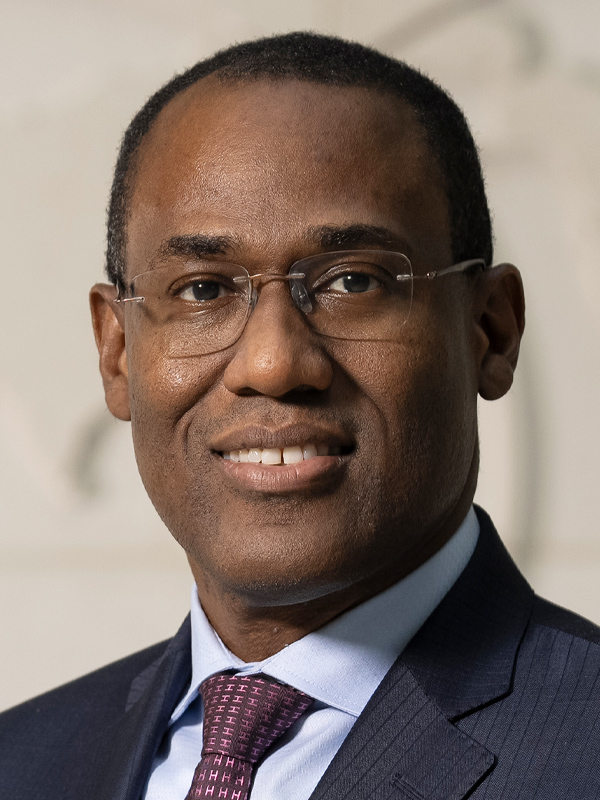“The Future of International Cooperation
on the 80th Anniversary of the End of World War II”
On Thursday, March 6, 2025, the Ministry of Finance, Japan will hold a one-day symposium titled, “The Future of International Cooperation on the 80th Anniversary of the End of World War ll.”
Division within domestic societies are widening across the world, including in advanced economies. The growing sense of stagnation and dissatisfaction within societies is contributing to social instability and fostering a hotbed for excessive nationalism, exclusivism, and populism. Reflecting these trends, economic policies around the world are leaning toward "big government," raising concerns about soaring debt levels.
On the international stage, the rise of protectionism and heightened geopolitical tensions have made global cooperation more challenging than ever. Furthermore, international organizations, which have served as the foundation of the global liberal economic system since the post-war era, are now being urged to re-define their roles in addressing multiple challenges.
This year marks 80 years since the end of World War II, a conflict born out of economic bloc formation. Against this backdrop, this discussion will explore how to promote international cooperation and the roles of international organizations to stabilize the global economy and to achieve sustainable growth.
With these issues in mind, this international symposium will invite experts from various countries. Please join us and listen to experts’ and policy makers’ sincere discussion.
* Each session details and participating panelists will be updated.
*A prior registration is required
*A prior registration is required
General Information
- Date
- March 6 (Thur), 2025, 10:00am-4:50pm (JST)
- Venue
- The Main Banquet Floor “Room Fuyo”, Hotel New Otani
Access - Host
- Ministry of Finance, Japan
- Language
- English (Simultaneous English-Japanese interpretation will be provided)
- Registration fee
- Free
- Capacity
-
- 200 people
- *Registration will be closed as soon as the capacity is reached.
- *This symposium will be held on-site only.
- Inquiry
-
- Registration Office of MOF Symposium 2025
- (c/o Convention Linkage, Inc.)
- 2 Sanbancho, Chiyoda-ku, Tokyo 102-0075, Japan
- TEL:+81-3-3263-8698
- E-mail:mof25reg@secretariat.ne.jp
- Business hours:Monday - Friday 10:00 - 17:00 (JST)
Important Request
- Please refrain from video recording,
photographing and audio recording of the event.
Access
- Hotel New Otani Tokyo The Main
- 4-1, Kioi-cho, Chiyoda-ku, Tokyo 102-8578, JAPAN
- TEL:+81-3-3265-1111

Program
“The Future of International Cooperation
on the 80th Anniversary of the End of World War II”
- Date
- March 6 (Thur), 2025
- Venue
- Hotel New Otani
- Language
- English
(Simultaneous English-Japanese
interpretation will be provided)
Timetable
| Time | Program |
|---|---|
| 10:00-10:10 | Opening |
| 10:10-10:30 | [Keynote Speech] The Role of International Organizations(IOs) and Expectations for Japan in an Increasingly Uncertain World |
| 10:35-11:50 | [Panel Discussion 1] Domestic instability and increasing government debt worldwide |
| 11:50-14:00 | Break |
| 14:00-15:15 | [Panel Discussion 2] The changing face of international cooperation amidst rising geopolitical tension and increased protectionism |
| 15:30-16:40 | [Panel Discussion 3] The role of international institutions as the global economy faces various crises |
| 16:40-16:50 | Closing |
*Please be noted that session topics, panelists, and schedule could be changed without any prior notice.
Keynote Speaker
and Panelists
Keynote Speaker
-
- IMF Deputy Managing Director
- Nigel Clarke
- IMF Deputy Managing Director
- Nigel Clarke
Mr. Clarke assumed the role of Deputy Managing Director at the IMF on October 31, 2024.
Before joining the IMF, Mr. Clarke served as Jamaica’s Minister of Finance and the Public Service, and a Member of Parliament, since March 2018. Prior to this, he served as Ambassador of Economic Affairs from 2016. During this period, he stewarded his country’s economy to a stronger and more sustainable position. He spearheaded ambitious national reforms, including central bank independence, creation of an independent fiscal commission, as well as other tax policy, public body governance, public procurement, public sector compensation, and public investment management reforms. He also led Jamaica’s economic policy response to the COVID-19 pandemic with innovative and well-targeted policy support and completed privatizations and public-private partnerships of major infrastructure assets. Under his stewardship, Jamaica implemented a multi-layered disaster risk financing model, and became the first small country to independently sponsor a catastrophe bond, with World Bank assistance. In 2023, Jamaica successfully completed its first ever international issue of a local currency denominated bond, and in 2024, Jamaica successfully executed its first ever securitization transaction in international capital markets.
In 2022, Mr. Clarke was elected Chairman of the Board of Governors of the Inter-American Development Bank and the Inter-American Investment Corporation. Prior to his public service career, he was Vice Chairman and Chief Financial Officer of the Musson Group, a regional conglomerate, having started his career as an Equity Derivatives Trader at Goldman Sachs in London.
Mr. Clarke holds a PhD in Numerical Analysis from Oxford University where he was a Rhodes Scholar, and a Master of Science Degree in Applied Statistics, also from Oxford, while he was a Commonwealth Scholar. He also holds a Bachelor of Science Degree in Mathematics and Computer Science from the University of the West Indies where he was a Jamaica Independence Scholar.
Panel discussion
-
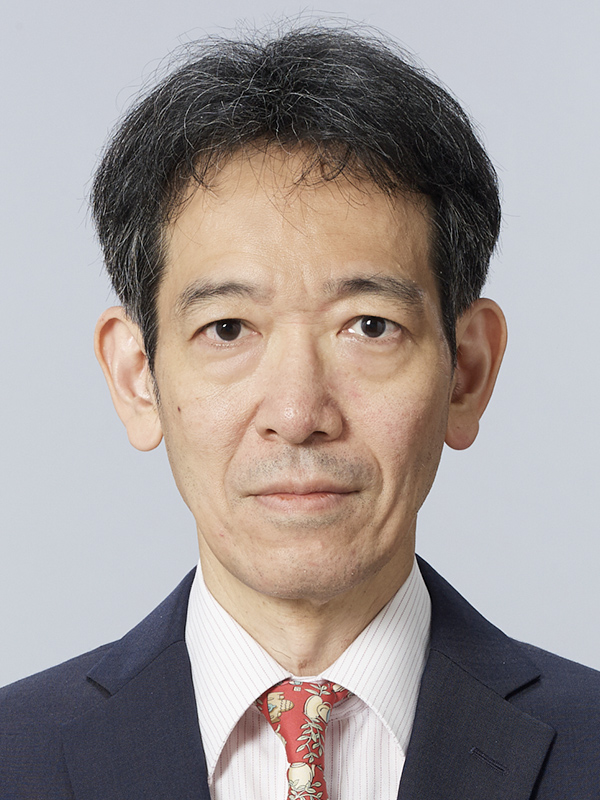
- Vice Minister of Finance for International Affairs, Ministry of Finance of Japan.
- MIMURA Atsushi
- Vice Minister of Finance for International Affairs, Ministry of Finance of Japan.
- MIMURA Atsushi
MIMURA Atsushi, Vice Minister of Finance for International Affairs, assumed his current position in July 2024, after serving as Director-General of the International Bureau in the Ministry of Finance of Japan (MOF) (2021-2024). He has held several key positions on international affairs in MOF, including Deputy Director-General of the International Bureau(2020-2021) and Deputy Vice-Minister of Finance for International Affairs(2018-2020). In these positions, he played a leading role in international development issues, including the IDA 20 replenishment as Japan’s IDA Deputy, and spearheaded the reforms of various domestic legislations, including the amendment of Japan’s Foreign Exchange and Foreign Trade Act in 2019. He also served as Director of the Administration and Legal Division, Minister’s Secretariat (2017-2018).
He also has extensive experience in financial sector regulation and supervision of the largest financial institutions, including through multiple positions in the Supervisory Bureau of the Financial Services Agency of Japan (FSA), namely Director of Banks Division I (2014-2015) and Director of Securities Business Division (2012-2014). Prior to this, he played an instrumental role in the reforms of international financial regulations during and immediately after the global financial crisis as Director of Office of International Affairs in FSA (2010-2012) and as an inaugural member of the Secretariat of the Financial Stability Board (2007-2010). He was also a financial attaché of the Embassy of Japan in France (1998-2001).
He received his L.L.B. from the University of Tokyo (1989) and Diploma of International Public Administration from Ecole Nationale d’Administration (ENA) of France (1993).
-
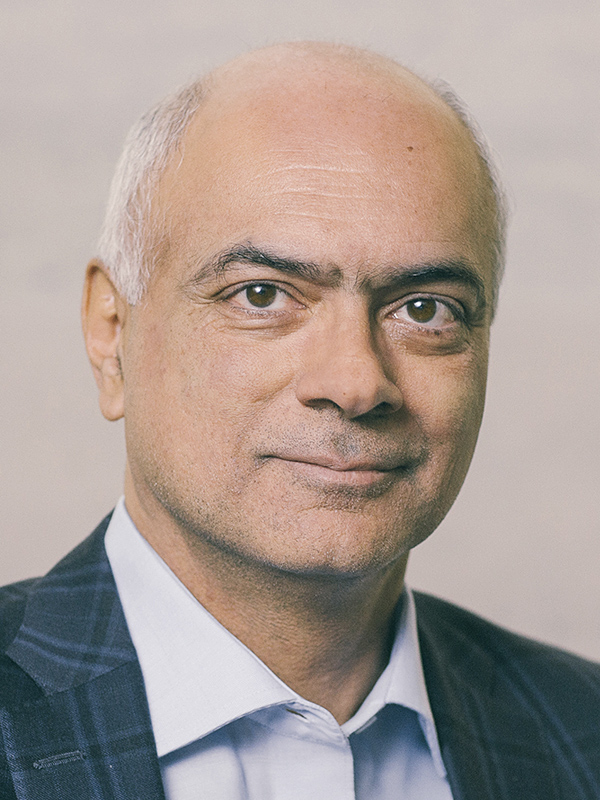
- Distinguished fellow, Centre for International Governance Innovation (CIGI), Canada
- Rohinton Medhora
- Distinguished fellow, Centre for International Governance Innovation (CIGI), Canada
- Rohinton Medhora
Rohinton Medhora is Professor of Practice at the Institute for the Study of International Development at McGill University, and a former president of the Centre for International Governance Innovation where he remains a Distinguished Fellow. Previously, he was vice president of programs at Canada’s International Development Research Centre. His fields of expertise are international economic relations, innovation policy, and development economics.
Rohinton sits on several non-profit boards, and is a member of the Commission on Global Economic Transformation co-chaired by Nobel economics laureates Michael Spence and Joseph Stiglitz. He previously sat on The Lancet and Financial Times Commission on Governing Health Futures 2030 and is a founding member of its successor, the Digital Transformations for Health Lab. In 2021-22 he chaired the Ontario Workplace Recovery Advisory Committee.
Rohinton received his doctorate in economics in 1988 from the University of Toronto, where he subsequently taught. He has published extensively in professional and non-technical journals and has produced several books.
-

- President of the Centre for International Governance Innovation (CIGI), Canada
- Paul Samson
- President of the Centre for International Governance Innovation (CIGI), Canada
- Paul Samson
-
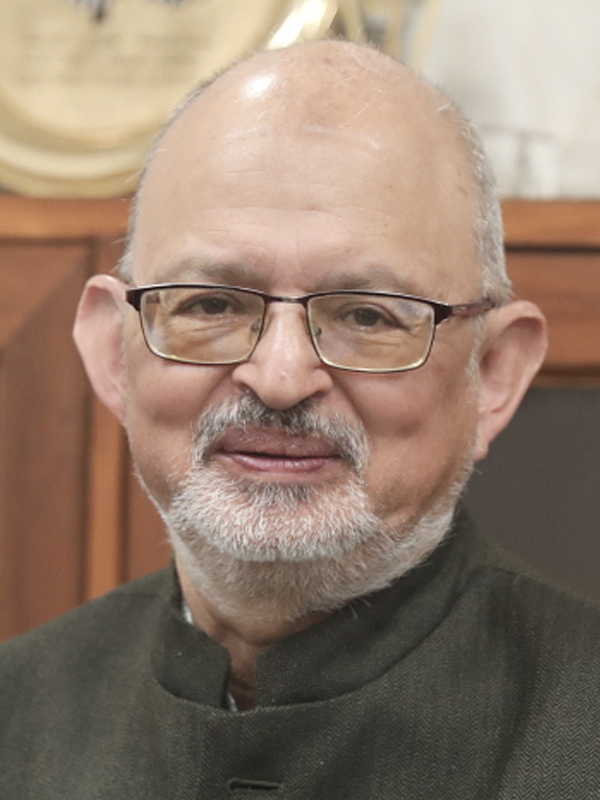
- Chairman of Observer Research Foundation, India
- Sunjoy Joshi
- Chairman of Observer Research Foundation, India
- Sunjoy Joshi
EDUCATION
Master’s Degree in English Literature from Allahabad University;
Master’s in Development Studies from University of East Anglia, NorwichEXPERIENCE
He began his career with the Government of India as a member of the Indian Administrative Service in 1983, serving in various capacities for 25 years when he left to join the Observer Research Foundation to pursue his primary interests in energy and environment. His last posting with the Government of India was as Joint Secretary in the Ministry of Petroleum and Natural Gas. He has been Director of the Board of National Energy Companies such as ONGC, OVL, OIL and MRPL and has had wide experience in administering fiscal and contractual regimes for oil and gas.
His experience of policy making and implementation cuts across the conventional as well as non-conventional energy sectors and covers issues related to water use, and its conservation and management. He has been Visiting Associate at the International Institute of Strategic Studies, London and Distinguished Visitor to the Program on Energy and Sustainable Development, University of Stanford. Takes keen interest in social development as Vice President of the Mountain Children’s Foundation, a not for profit group working with rural children in the Himalayas.
He speaks publishes and comments on the world of technology, energy, and development, framing them in the context of global shifts and the challenges to growth and employment faced by emerging economies. To generate serious interest on these subjects among a wider audience he has initiated a regular Youtube commentary on Global and Current Affairs called India’s World which attracts a diverse audience and remains the only one of its kind in Hindi on such diverse subjects.
Ctrl+Click below to watch India’s World:
-
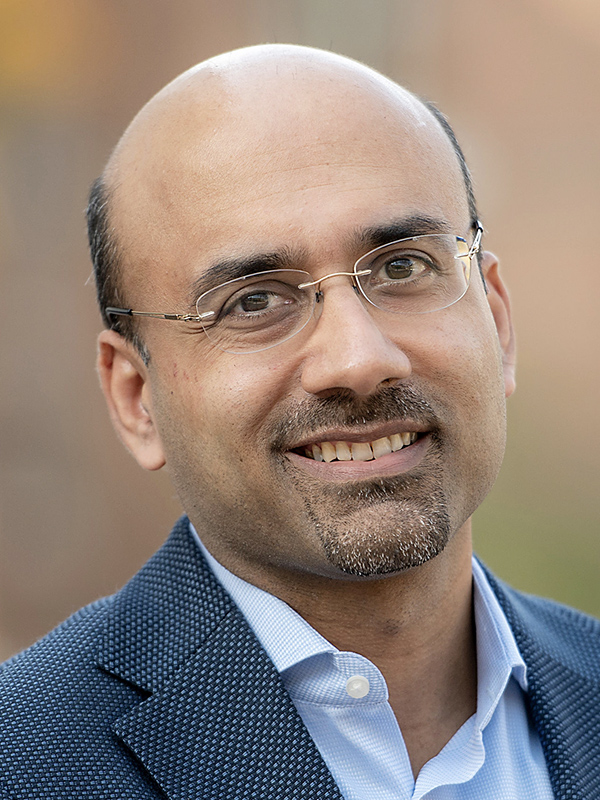
- Professor of Economics and Public Affairs, and Director, Julis-Rabinowitz Center for Public Policy and Finance, Princeton University
- Atif Mian
- Professor of Economics and Public Affairs, and Director, Julis-Rabinowitz Center for Public Policy and Finance, Princeton University
- Atif Mian
Atif Mian is a Pakistani-American economist renowned for his research on the interplay between finance and the macroeconomy. He holds the position of John H. Laporte Jr. Class of 1967 Professor of Economics, Public Policy, and Finance at Princeton University and serves as the director of the Julis-Rabinowitz Center for Public Policy and Finance at the Princeton School of Public and International Affairs.
Mian received his early education in Pakistan before attending the Massachusetts Institute of Technology (MIT) on a scholarship to study mathematics and computer science for his undergraduate degree. He then his Ph.D. in Economics from MIT in 2001. Mian has been a faculty member at the University of Chicago (2001–2009) and later at the University of California, Berkeley (2009–2012). In 2012, he joined Princeton University, where he continues to teach and conduct research. His work has been published in top academic journals, including the American Economic Review, Quarterly Journal of Economics, and the Journal of Finance.
Mian co-authored the critically acclaimed book House of Debt which examines how debt precipitated the Great Recession and its ongoing threat to the global economy. The book was shortlisted for the Financial Times Business Book of the Year and won the Gordon J. Laing Prize of the University of Chicago Press. In 2014, the International Monetary Fund (IMF) recognized Mian as one of 25 young economists expected to shape global economic thinking. He is the first person of Pakistani origin to rank among the top 25 young economists worldwide. In 2021, he was elected a Fellow of the Econometric Society and received a Guggenheim Fellowship. Beyond academia, Mian co-founded the Center for Economic Research in Pakistan (CERP) in 2007, a non-profit research institute dedicated to economic research, teaching, and innovation.
-
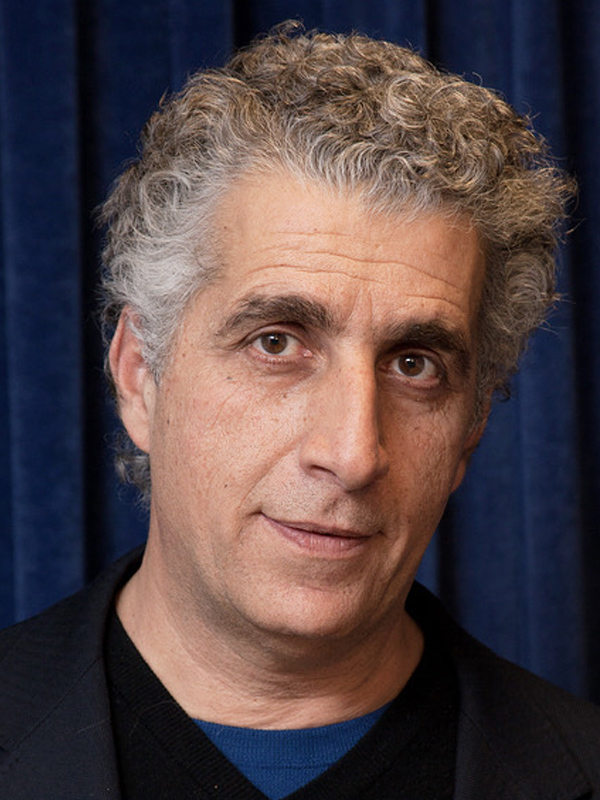
- Research Director at the Finance for Development Lab at the Paris School of Economics
- Ishac Diwan
- Research Director at the Finance for Development Lab at the Paris School of Economics
- Ishac Diwan
Ishac Diwan is a Professor of Practice in Economics at the American University of Beirut since 2024. He is also the Research Director of the Finance for Development Lab at the Paris School of Economics, and in charge of the Political Economy program of the Economic Research Forum, an association of Middle East social scientists.
Ishac has held in recent years teaching positions at Ecole Normale Superieure in Paris, Columbia University, School for International Public Affairs, and at the Harvard Kennedy School.
Ishac received his PhD in Economics from the University of California at Berkeley. He taught international finance at the New York University’s Business School before joining the World Bank, working in the Research Complex (1987-92), the Middle East department (1992-96), and the World Bank Institute (1996-2002). He was the World Bank’s Country Director for East (2002-07), and then West Africa (2007-11).
His current research interests focus on the political economy of the Middle East, as well as on broader development issues, and international financial issues. His recent (co-authored) books include A Political Economy of the Middle East (Westview Press 2015); and Crony Capitalism in the Middle East (Oxford University Press, 2019). He is widely published in a variety of journals (see https://ishacdiwan.com/).
-

- Senior fellow at the Peterson Institute for International Economics (PIIE)
- Maurice Obstfeld
- Senior fellow at the Peterson Institute for International Economics (PIIE)
- Maurice Obstfeld
Maurice Obstfeld is the C. Fred Bergsten Senior Fellow at the Peterson Institute for International Economics and the Class of 1958 Professor of Economics Emeritus at the University of California, Berkeley. From 2015 through 2018, he served as Economic Counsellor and Director of Research at the International Monetary Fund. During 2014 and 2015, he was a Member of President Obama’s Council of Economic Advisers. He co-authored International Economics (with Paul Krugman and Marc Melitz), Foundations of International Macroeconomics (with Kenneth Rogoff), and Global Capital Markets (with Alan M. Taylor). Prior to arriving at the economics department at Berkeley in 1991, he held faculty appointments at Columbia and the University of Pennsylvania, as well as a visiting appointment at Harvard.
-
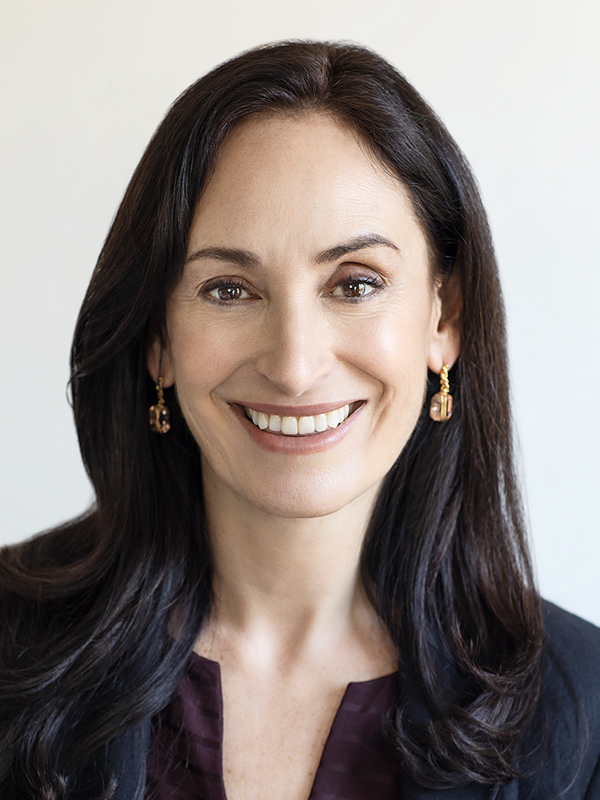
- Senior vice president, director of studies, and Maurice R. Greenberg chair at the Council on Foreign Relations (CFR)
- Shannon K. O'Neil
- Senior vice president, director of studies, and Maurice R. Greenberg chair at the Council on Foreign Relations (CFR)
- Shannon K. O'Neil
Shannon K. O'Neil is senior vice president, director of studies, and Maurice R. Greenberg chair at the Council on Foreign Relations (CFR), where she oversees the work of the more than six dozen fellows in the David Rockefeller Studies Program as well as CFR’s fourteen fellowship programs. She is a leading authority on global trade, supply chains, Mexico, and Latin America.
Dr. O’Neil is the author of The Globalization Myth: Why Regions Matter, which chronicles the rise of three main global manufacturing and supply chain hubs and what they mean for U.S. economic competitiveness. She also wrote Two Nations Indivisible: Mexico, the United States, and the Road Ahead, which analyzes the political, economic, and social transformations Mexico has undergone over the last three decades and why they matter for the United States. She has taught at Harvard and Columbia Universities, and began her career in emerging markets finance. -
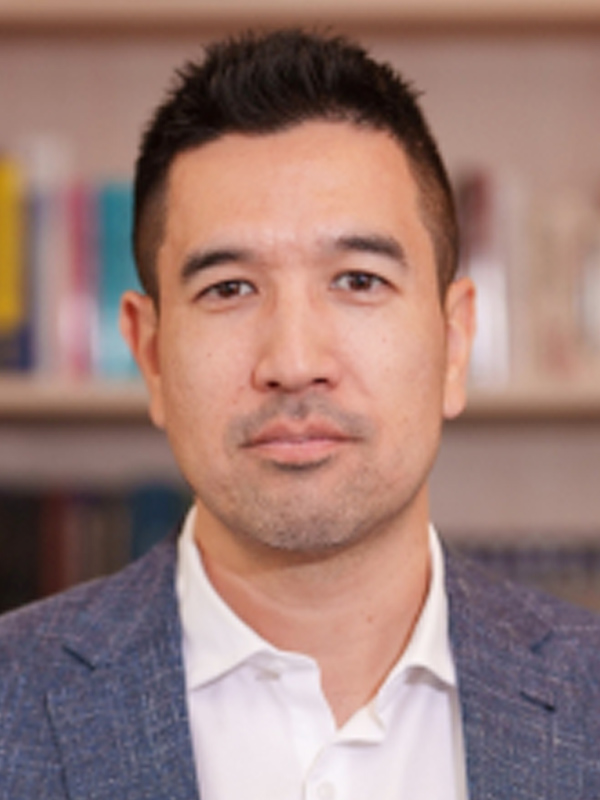
- Director, Australia-Japan Research Centre; Director, East Asian Bureau of Economic Research; and Professor, Crawford School
- Shiro Armstrong
- Director, Australia-Japan Research Centre; Director, East Asian Bureau of Economic Research; and Professor, Crawford School
- Shiro Armstrong
Shiro Armstrong is Professor of Economics at the Crawford School of Public Policy at The Australian National University. He is Director of the Australia-Japan Research Centre, Editor of the East Asia Forum, and Director of the East Asian Bureau of Economic Research. He is also a Visiting Professor at Keio University, Research Associate at the Center on Japanese Economy and Business at the Columbia Business School, Visiting Lecturer at the University of Tokyo and Non-resident Fellow at the Research Institute of Economy, Trade and Industry, Japan. He is the recipient of the 2024 Nakasone Yasuhiro Award.
-
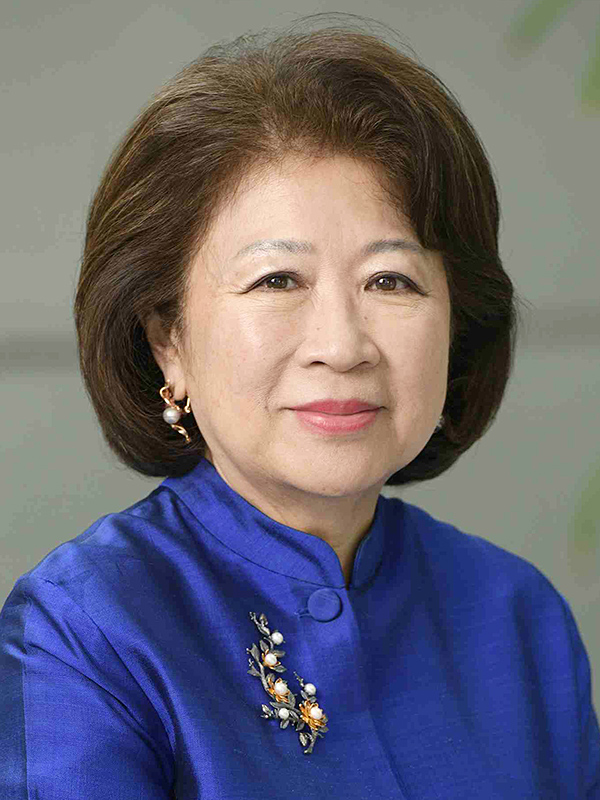
- Former Managing Director of Development Policy and Partnerships,World Bank
- Mari Elka Pangestu
- Former Managing Director of Development Policy and Partnerships,World Bank
- Mari Elka Pangestu
Mari Pangestu was the World Bank Managing Director of Development Policy and Partnerships, March 2020-2023. Prior to joining the Bank Mari Pangestu served as Indonesia’s Minister of Trade from 2004 to 2011 and as Minister of Tourism and Creative Economy from 2011 to 2014.
She has had vast experience of over 30 years in academia, second track processes, international organizations and government working in areas related to international trade, investment and development in multilateral, regional and national setting.
Ms Pangestu is highly regarded as an international expert on a range of global issues and has served on a number of boards and task forces such as, the Chairperson of the Board of Trustees of the International Food Policy Research Institute (IFPRI) in Washington D.C and commissioner for the Low Carbon Development Initiative of Indonesia as well as an executive board member of the International Chamber of Commerce (ICC). She has also served on the board of a number of private sector companies and is currently a non executive director on the Board of AIA.
Currently, she is a Professor of International Economics at the University of Indonesia and a Board Member of the Centre for Strategic and International Studies (CSIS), Jakarta. She is also a Distinguished Fellow at the Peterson Institute for International Economics, Senior Fellow at Columbia School of International and Public Affairs and Honorary Professor at the Crawford School of Public Policy, Australian National University.
She obtained her bachelor’s and master’s degree in economics from the Australian National University, and her doctorate in economics from the University of California at Davis.
-
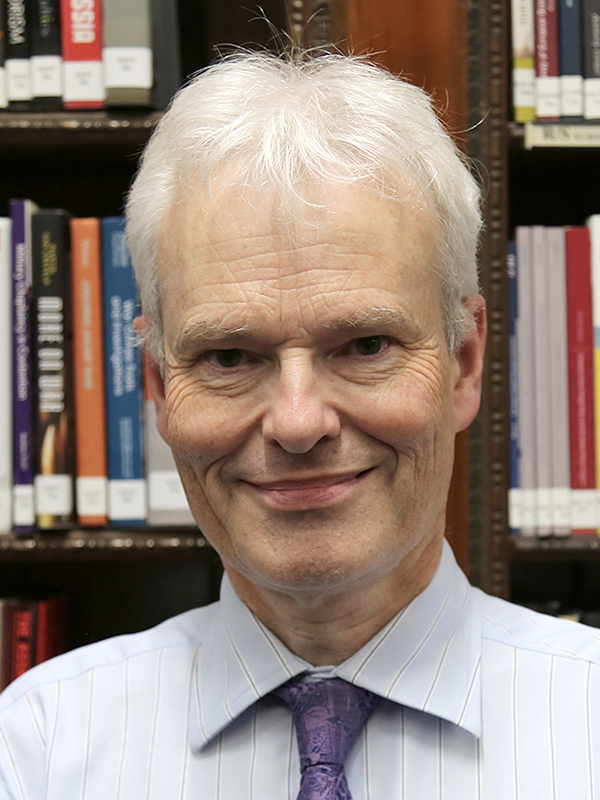
- Director, Global Economy and Finance Programme at Chatham House
- Creon Butler
- Director, Global Economy and Finance Programme at Chatham House
- Creon Butler
Creon Butler leads the Global Economy and Finance Programme at Chatham House. He joined the institute in 2019, since when he has written and published on a wide range of global economic policy issues, including the interaction between macroeconomic policy and climate change, sovereign debt distress, the challenge of funding global health priorities, and the long-term implications for the international economic system of the pandemic and the war in Ukraine.
Before joining Chatham House, Creon served in the UK Cabinet Office as director for international economic affairs in the National Security Secretariat and G7/G20 ‘sous sherpa’, advising the UK Prime Minister on global economic policy issues.
Creon first joined the Cabinet Office in 2013 as director in the European and Global Issues Secretariat and designed the UK’s global Anti-Corruption Summit in May 2016.
He was also the British deputy high commissioner in New Delhi from 2006 to 2009 and has served in senior positions in HM Treasury and the Bank of England.
-
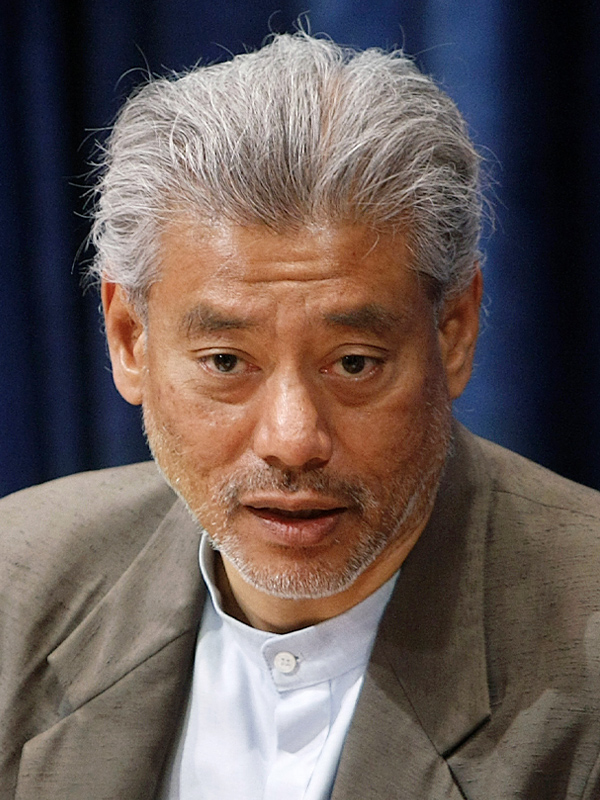
- Assistant Director General for Economic and Social Development, Food and Agriculture Organization (FAO) of the United Nations, Research Advisor at Khazanah Research Institute and Visiting Fellow at the Initiative for Policy Dialogue, Columbia University
- Jomo Kwame Sundaram
- Assistant Director General for Economic and Social Development, Food and Agriculture Organization (FAO) of the United Nations, Research Advisor at Khazanah Research Institute and Visiting Fellow at the Initiative for Policy Dialogue, Columbia University
- Jomo Kwame Sundaram
Jomo Kwame Sundaram is Research Adviser at the Khazanah Research Institute. He is also Fellow of the Academy of Science, Malaysia and Emeritus Professor at the University of Malaya. He was UN Assistant Secretary-General for Economic Development (2005-12) and Assistant Director General for Economic and Social Development, Food and Agriculture Organization (FAO) (2012-15). He received the 2007 Wassily Leontief Prize for Advancing the Frontiers of Economic Thought and honorary doctorates from several universities. The World Academy of Sciences has announced he will share the 2026 TWAS Award in Social Sciences.
Jomo has authored and edited over a hundred books and translated 12 volumes besides writing many academic papers and media articles. He was Professor in the Faculty of Economics and Administration, University of Malaya until November 2004, Founder Director (1978-2004) of the Institute of Social Analysis (INSAN), Founder Chair (2001-04) of IDEAs, International Development Economics Associates (www.ideaswebsite.org), independent member of the National Economic Consultative Council (1989-91) and President of the Malaysian Social Science Association. He is on the editorial boards of several learned journals.
Jomo studied at the Royal Military College (1967-70), Yale College (1970-73) and Harvard University (1973-77). He taught in Malaysia from 1974, and at Harvard, Yale, and Cornell. He has also been Visiting Fellow at Cambridge University and the National University of Singapore.
-
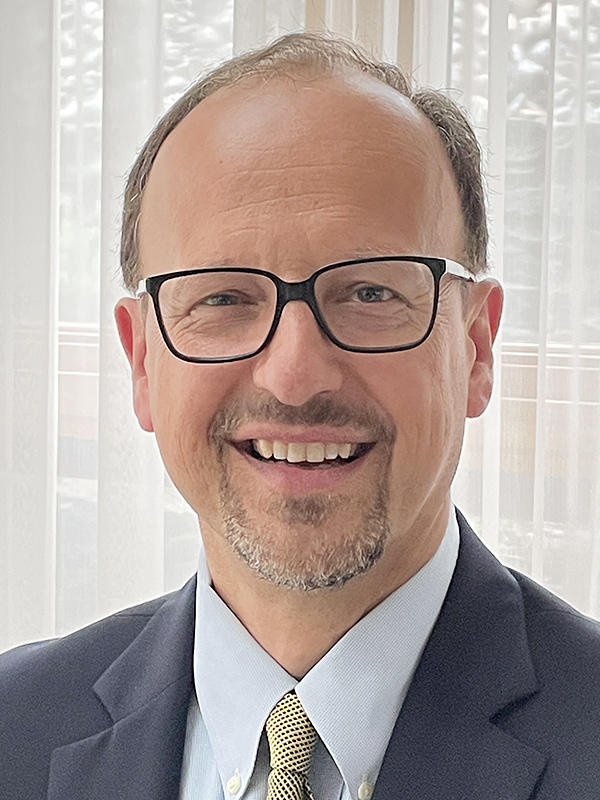
- Nonresident senior fellow at the Atlantic Council’s GeoEconomics Center
- Martin Mühleisen
- Nonresident senior fellow at the Atlantic Council’s GeoEconomics Center
- Martin Mühleisen
Martin Mühleisen is a former IMF official with decades of experience in economic crisis management and financial diplomacy. He is a nonresident senior fellow at the Atlantic Council’s GeoEconomics Center, focusing on questions of global economics and multilateral institutions.
At the IMF, Mühleisen served as Chief of Staff and principal advisor to Managing Director Christine Lagarde, and subsequently as director of the Strategy, Policy, and Review Department. He represented the IMF in G7 and G20 meetings, participating in numerous deputy meetings and six leader summits.
As head of strategy, he led the IMF’s unprecedented response to the COVID-19 crisis, as well as the work toward issuing new Special Drawing Rights (SDRs) and implementing the G20 Common Framework for Debt Relief. Earlier in his career, he was deeply involved in the IMF’s response to the global financial crisis and the euro area programs.
Mühleisen is a Konrad Adenauer scholar and holds a master’s degree in economics from Cambridge University and a PhD summa cum laude from the University of Munich.
-
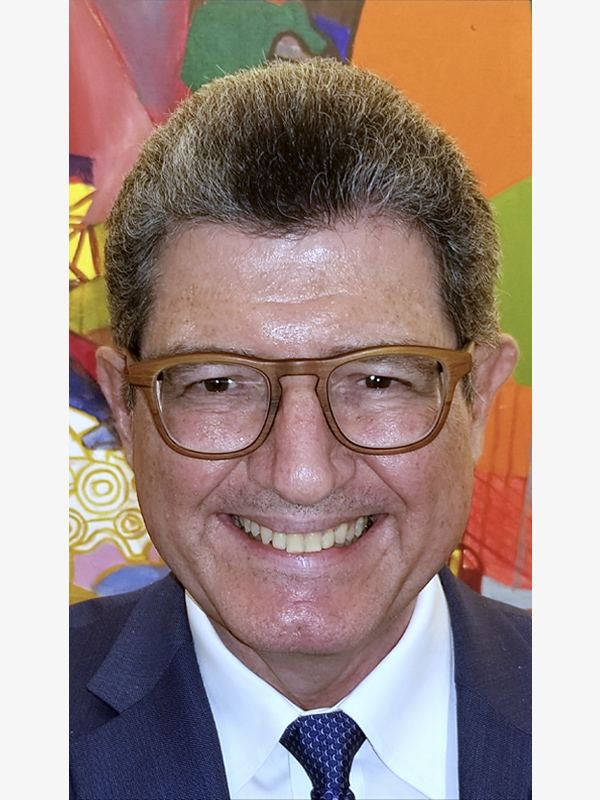
- Former Managing Director and World Bank Group Chief Financial Officer
- Joaquim Levy
- Former Managing Director and World Bank Group Chief Financial Officer
- Joaquim Levy
Joaquim Levy is an Executive VP (Diretor) at Banco Safra SA and former Finance Minister of Brazil, General Manager and CFO of the World Bank Group, President of BNDES, and CEO of Bradesco Asset Management.
Dr. Levy is Co-chair of Latam and Chair of Brazilian Chapter of Gfanz, Co-chair of the Bretton Woods Committee Multilateral Reform Working Group, Board Member of World Resources Institute-WRI, Head of the Sustainable Development Council of São Paulo Industry Federation--FIESP and was a member of the UN Expert Group for Net Zero Recommendations for non-State Actors. He earned a PhD in Economics from the University of Chicago, a MS - Getúlio Vargas Foundation, and BS in Naval Architecture from UFRJ in Brazil.
-
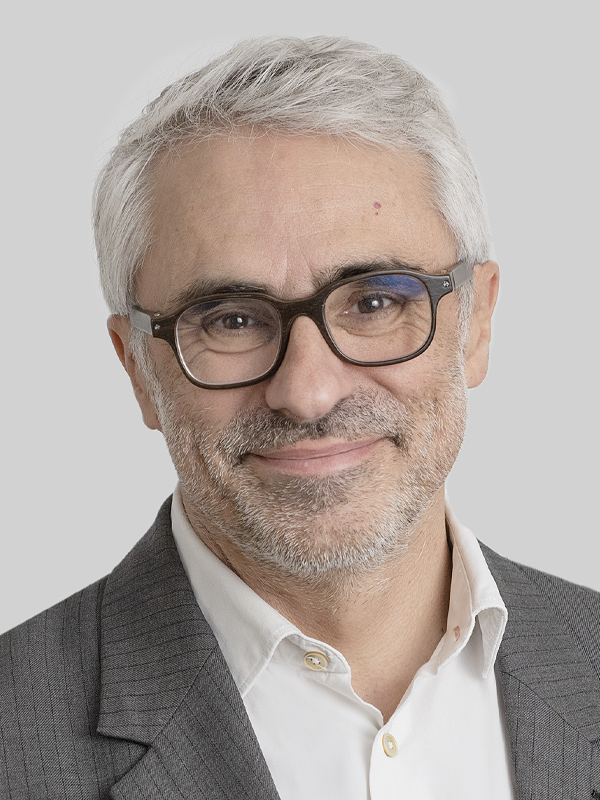
- Former director of the Centre for Tax Policy and Administration at the OECD; Professor of Taxes at Lausanne University
- Pascal Saint-Amans
- Former director of the Centre for Tax Policy and Administration at the OECD; Professor of Taxes at Lausanne University
- Pascal Saint-Amans
Pascal Saint-Amans is Professor of tax policy at HEC Paris and Lausanne University. He is partner at Brunswick and advises governments on tax policy and clients worldwide on policy and regulatory matters, including tax-related issues.
Prior to joining Brunswick, Pascal was director of the Centre for Tax Policy and Administration at the OECD where, working with G20 countries, he led the international tax policy reform, including ending bank secrecy or updating the rules for the taxation of Multinational Enterprises, known as the BEPS (Base Erosion and Profit Shifting) project. Pascal supported countries in designing their tax policies and provided technical assistance to developing countries. He launched the Tax Inspectors Without Borders Initiative.
Pascal graduated from the National School of Administration (ENA) in 1996 and was an official in the French Ministry for Finance for nearly a decade. He held various positions within the Treasury. He was also a member of the UN Group of Experts on International Co-operation in Tax Matters, becoming a “rapporteur” in 2006.
Pascal also served as Financial Director of the Energy Regulation Committee between 1999 and 2002 and was responsible for the introduction of new electricity tariffs. He was awarded with the Order of Rising Sun, Gold Ray and neck Ribbon.
*A prior registration is required
*A prior registration is required
